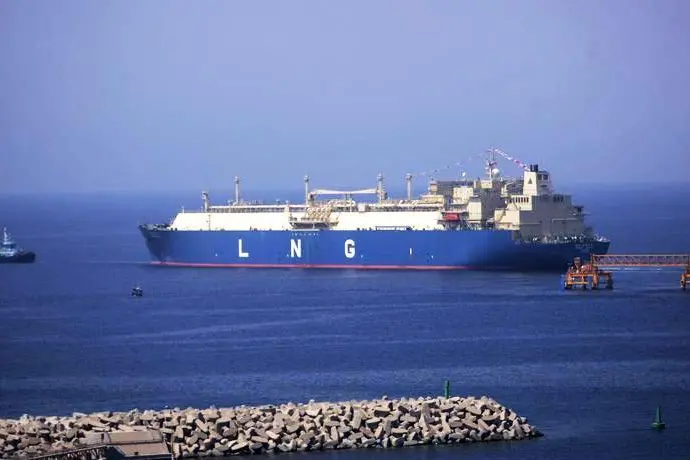PHOTO
DHAKA- Bangladesh plans to import three spot liquefied natural gas (LNG) cargoes for delivery in June to meet increased power demand over the peak summer season, a government source said.
Many areas in Bangladesh have had frequent power cuts despite government efforts to ration gas supplies, and power cuts could increase heading into summer due to increased demand for air-conditioning.
Natural gas accounts for nearly three-quarters of the country's power generation. Bangladesh imports about 300-400 million cubic feet of the super cooled gas daily under its two long-term deals with Oman and Qatar.
Petrobangla, in charge of LNG imports in Bangladesh, will import two spot cargoes in May when it will also get six parcels under its long term supply deals, the government source with direct knowledge of the matter said.
Petrobangla has been consistently tapping the spot market for LNG import since February, buying an average of two cargoes in a month.
However in April it bought three spot LNG cargoes due to rising demand for the month of Ramadan, the source said.
This source is skeptical that Bangladesh can continue to import costlier spot LNG on a regular basis because retail prices are government controlled.
"I don't know how long the government can afford to buy without raising the prices locally."
Asian LNG spot prices , which had surged to record levels due to the Ukraine-Russia crisis, cooled last week as they typically do ahead of summer and also due to COVID lockdowns in China.
However, forecasts of a hotter than usual summer in many parts of Asia could translate into higher demand and potentially higher prices.
Bangladesh's Ministry of Power, Energy and Mineral Resources and Petrobangla did not immediately respond to a request for comment.
Another government official said Bangladesh is scouting for more long-term gas import deals to hedge against volatilities in the global markets.
"The government is making frantic efforts to cope with the crisis. It is looking for more long term deals to avoid abnormal price shocks," he said.
(Writing by Nidhi Verma. Editing by Sanjeev Miglani and Jane Merriman)





















